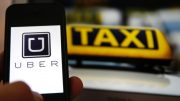The ratings that films are given can be among the most controversial decisions associated with any film. Exactly how one defines what material is suitable for which audience is never a simple question. However, a new lawsuit looks to make the MPAA’s job a little easier. It would prevent the MPAA from giving a rating of G, PG, or PG-13 to any film that depicted the act of smoking. The Motion Picture Association of America is, as one would expect, fighting the lawsuit. This slope is going to get slippery. Hold on to your butts. Here we go.
A gentleman named Timothy Forsythe is the named plaintiff in the lawsuit that has been brought against the MPAA, though the brief claims that he represents a “class of similarly situated individuals.” If successful, the suit would effectively ban smoking in all movies rated PG-13 or lower. The plaintiff’s side argues that movies which depict smoking have a major impact on the young people watching them, and as such movies that show smoking are not suitable for them. The MPAA is holding that banning smoking in some films is effectively a free speech issue, which is protected by the first amendment to the Constitution. However, the plaintiff says that MPAA ratings are not protected by the first amendment because they qualify as false advertising.
Essentially, the affirmative argues that an MPAA rating of PG-13 is an advertisement that a movie is acceptable for young people. The complaint claims to have statistics to support the link and used Transformers: Age of Extinction and Spectre as examples, though The Guardian quotes the MPAA as saying that such information is “too attenuated and speculative to support damages.”
Starting in 2007, the MPAA began to make smoking a consideration when assigning film ratings. They take into account whether the film glamorizes smoking in any way, but there are no specific rules as to what ratings are appropriate for films that contain smoking.
If this were only one lawsuit that would be one thing, however, there’s a broader concept here that could have wide-reaching consequences for the movie industry. The basic argument is that children should not be exposed to something in a movie because it is dangerous and potentially fatal. But so is driving a car like Vin Diesel in a Fast & Furious movie. Lots of things depicted in movies, from gunfights, to drinking alcohol, are dangerous. If this suit is successful, there’s a precedent set for anybody who wants to ban anything else they think young people should not be exposed to.
It’s an interesting argument, to say the least. We’ll be keeping our eyes on this one to see how it comes out. What do you think of the lawsuit idea? Is smoking in a movie that’s considered suitable for kids false advertising?
Source: www.cinemablend.com




